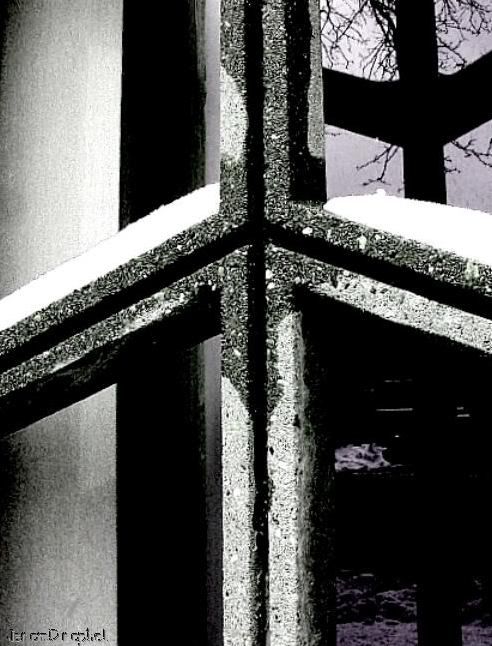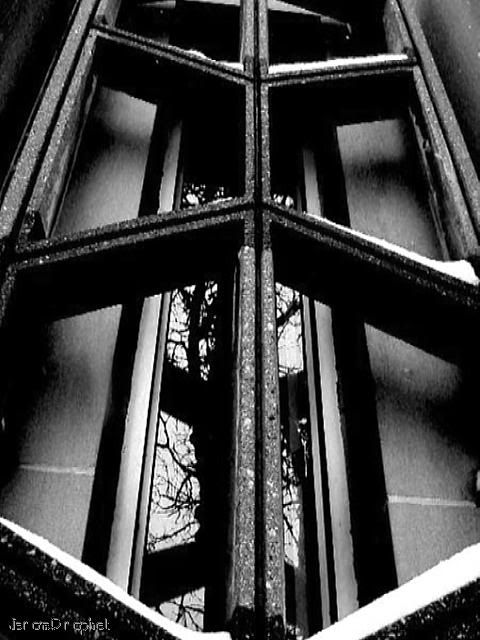
Photo: First United Methodist Church - 501 East Capitol, Springfield, Illinois
I was raised as a christian in a predominantly christian society in the last half of the twentieth century. I found that once I was mature enough to question all that I had been taught about my christian faith that holding onto that faith wasn't simply a matter of casting out unholy thoughts.
I knew most of my friends really didn't care one way or another about their faith to question it, but I felt doubts creeping in from about the age of twelve.

Photo: First United Methodist Church - 501 East Capitol, Springfield, Illinois
At about the age of twelve the average human brain has developed enough so as to allow for more complex, and abstract thought formation. At this age children who believe their parents are beyond reproach begin to question them, and their authority. They also begin to question other aspects of their lives - including their faith.
For me it meant sneaking out of church service, and hanging out on the front steps of the church with other lost boys - talking about anything, and everything, but not about God.
Jesus at about this age most likely started to question his beliefs, and started hanging out in those sections of the nearby temples in which average believers were allowed.
The priests of our church would joke with us boys a bit, and then remind us that service was starting soon. He'd then walk inside to begin the church service. I suspect he believed that it was just a phase, and that one day we'd realize the importance of attending church service each, and every Sunday.

Photo: First United Methodist Church - 501 East Capitol, Springfield, Illinois
I often wonder if Jesus had been raised in a time of democratice ideology, scientific discovery, and material progress, if he would have kept questioning his faith for as long as I have. Would Jesus have affirmed his faith? Jesus is often seen as a revolutionary, but he also accepted his faith, and it is here that I suspect that Jesus would have had a problem with our modern secular society - and perhaps me.
Studies show that Baby Boomers drifted away from the church, and many have returned in recent years as they near their inevitable appointment with death. Yet, how many who strayed, and came back, returned in affirmation of their faith? I suspect most returning have done so for a variety of reasons including those not related to Christianity itself. Mother church is a comfort in many ways beyond dogma.
I myself am still searching, and like a voyager out to sea my spiritual side is often thrown into stormy passages of doubt. Yet I am not drifting, but sailing for ports which I have chosen. I assume both the responsibility, and the spoils provided only to those who embrace free thought, and the doubt it allows.
Some view doubt as a temptation offered by the devil to persuade we mortals to join him against God, but I don't accept that argument, and never have. Perhaps that is why I found myself on those steps outside the church - listening to the voices raised in praise - but from the outside.
Still, despite my doubts, I believe that the story of Jesus' mortal sacrafice warns perfectly of the ugliness, and brutality of our human nature. That the story speaks truly of our inherent willingness to dominate, plunder, subjugate, enslave, rape, and kill those unable to defend themselves from our baser instincts.
The Christian holy week speaks to this modern secular age of the futility of living a life without moral limits, without justice, and without reason as loudly now as it ever has - of this I have no doubt. It's a lesson the whole world can learn from no matter what faith, or doubts one may subscribe to.

No comments:
Post a Comment